Maybe it’s for a job application, or your partner asked you to take one to prove your innocence. Whatever the reason, polygraph tests are stressful experiences. However, going in prepared can help ease your nerves and ensure accurate results. Follow these do’s and don’ts when taking a polygraph test:
Before the Test
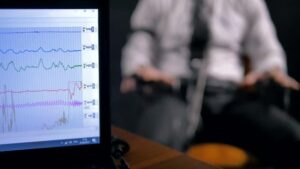
Do get a good night’s sleep
Arriving well-rested will help you stay focused and calm during the lengthy exam. Aim for 7-9 hours of shut-eye the night before your test. Avoid caffeine and nicotine close to bedtime, as these can disrupt sleep.
Do have a light meal
Eat a light, protein-rich breakfast or lunch before the test. Going in hungry can make you feel weak, distracted, or irritable. A grumbling stomach can also interfere with results. Stick to easy-to-digest foods like eggs, yogurt, oatmeal, or a peanut butter sandwich. Avoid heavy, fatty, or sugary foods that can cause indigestion.
Do dress comfortably
Wear loose, comfortable clothing that allows for polygraph instrument wires. Avoid noisy accessories like jangly jewelry or rustling fabrics that could distract you or interfere with recordings. Dress in layers to adjust for warm or cool exam room temperatures.
Do disclose health conditions
Inform the examiner ahead of time if you have any medical issues like heart disease, breathing problems, or take medications that affect heart rate, blood pressure, or anxiety. These can highly influence polygraph results if unreported.
Don’t consume intoxicants
Avoid alcohol, recreational or prescription drugs, and even some over-the-counter medications before your test. Intoxicants impact physiological responses and brain function, invalidating test results.
Don’t overthink it
Worrying excessively about the test can spur anxiety that skews results. Distract yourself beforehand with positive activities like exercising, meditating, or enjoying hobbies. Don’t obsess over your honesty or controlling reactions.
During the Test
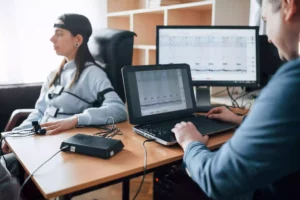
Do answer honestly
Lying will likely get caught by the polygraph. Answer all questions honestly and directly to achieve accurate test results. Avoid overexplaining or making excuses. Keep responses brief but with important details.
Do stay still
Avoid excess movement during the exam, which can disturb instrument sensors. Sit upright without crossing arms or legs. Keep both feet flat on the floor. Remain motionless during questioning. Nod or verbally reply to questions rather than gesturing.
Do breathe regularly
Concentrate on taking steady, even breaths. Don’t hold your breath, pant, gulp air, or breathe rapidly, as this affects blood pressure and heart rate readings. Inhale for 5 counts, exhale for 5 counts.
Don’t tense muscles
Relax muscles completely rather than tensing up. Tensing distorts physiological responses, impacting test accuracy. Let arms dangle loosely, legs rest naturally, jaw hang slack.
Don’t ask about questions
Don’t inquire about the next question or when the test will end. This borders on interfering with the exam. Just focus on answering questions candidly as they come.
After the Test
Do review results calmly
Avoid overreacting to test outcomes. Polygraph results aren’t foolproof. Listen calmly as the examiner shares whether you passed or failed. Ask polite questions about the readings if anything seems unclear.
Do get a second opinion
If you fail the test, request a second polygraph exam for confirmation. Testing errors happen occasionally. Verify results by taking another test soon after the first.
Don’t make accusations
Don’t accuse the examiner of botching the test if unhappy with results. That risks looking defensive and dishonest. Politely emphasize you know the findings to be mistaken and want a retest.
Don’t celebrate openly
If you pass, don’t gloat, pump your fist, or shout with joy. Remain professional and thank the examiner respectfully. Overcelebrating makes it seem like you lied but somehow fooled the test.
Do send a thank you
Follow up with a short thank you note to the examiner. This builds good will in case you need their polygraph services again down the road. Briefly express appreciation for their time and expertise.
Choosing an Examiner
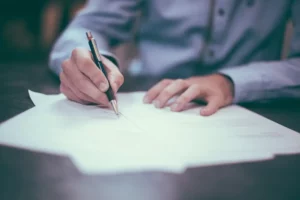
Select an experienced, reputable examiner to ensure accurate, fair test results.
Do verify qualifications
Ensure the examiner underwent extensive accredited training and regularly completes continuing education. They should have certification from the American Polygraph Association.
Do check credentials
Look for lengthy experience conducting polygraph tests, such as 5+ years. Expertise with specific types of exams (e.g. forensic, federal) is ideal. An ex-law enforcement or government background is a plus.
Do request referrals
Ask the examiner for names of previous clients you can contact for references on their professionalism, testing procedures, and integrity. Speaking to referrals provides first-hand insights.
Don’t rely on cost
Avoid choosing an examiner solely based on low fees. This tempts underqualified individuals to cut corners that compromise accuracies. Expect to pay $300-$500 for a reputable examiner.
Don’t disregard reviews
Check independent online reviews of the examiner’s business. Numerous negative reviews or professional complaints should raise red flags on service quality.
Polygraph Test Settings
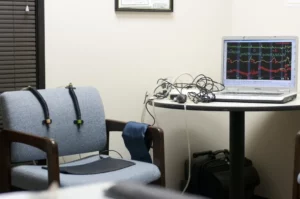
Polygraph testing facilities impact comfort and focus during the exam.
Do opt for a private environment
Take the test in a secure, indoor location with minimal distractions. Home and mobile exams are risky due to interruptions. Professional testing centers are ideal for privacy.
Do request monitoring
For sensitive tests, have an observer like a lawyer monitor from another room. This ensures proper procedures are followed if issues later arise.
Don’t take it at home
Avoid polygraphs at private residences. Too many interruptions and comforts of home can interfere with results. It also looks suspicious if you fail.
Don’t allow unauthorized attendees
Refuse to take the test if more than the necessary examiner and monitor are present. Extra attendees raise risks of distractions or intimidation tactics.
Polygraph Test Questions
Test questions must be straightforward and relevant to produce valid results.
Do insist on simple wording
If a question is complex or confusing, politely ask for clarification or rephrasing. Keep questions brief, direct, and free of legal jargon.
Do object to vague questions
Raise concerns if questions are overly broad or vague. Respond to specifics only to prevent misleading answers. Overly general questions allow misinterpretations.
Do decline irrelevant questions
Politely refuse to answer overly personal or irrelevant questions. For employment exams, questions should relate directly to job qualifications. In legal cases, they should pertain to the investigation.
Don’t ramble
When asked an open-ended question, respond with concise, factual statements rather than meandering stories. Rambling makes it harder to detect truthfulness.
Don’t joke around
Remain serious when answering all questions. Humor and sarcasm are inappropriate during polygraphs and make you appear dishonest. Give straight, earnest replies.
Pre-Test Interviews
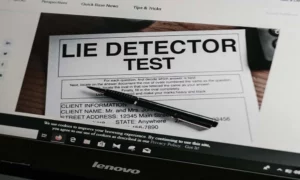
Pre-test interviews prepare you for procedures and question topics.
Do answer background questions
Provide accurate details when asked about your work experience, health history, relationships, education, and other background. This helps contextualize your responses.
Do take notes
Ask permission to take written notes on the testing process, question types, your rights, and other key details covered. Refer back to ensure proper procedures.
Do voice concerns
Speak up if the examiner refuses to explain procedures, rushes the interview, or asks objectionable questions. This protects your rights.
Don’t get defensive
If asked confrontational questions, don’t get defensive or refuse to respond. Calmly provide honest, thorough answers to demonstrate you have nothing to hide.
Don’t make small talk
Avoid trying to chat casually with the examiner. Remain focused on the task at hand. Save non-essential questions and comments for pre or post-test.
Summary
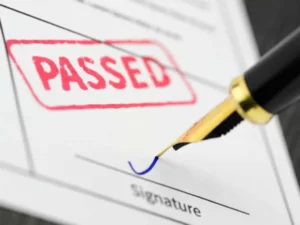
With proper preparation, honesty, and an experienced examiner, polygraph tests can reliably assess truthfulness. Avoid common mistakes like poor sleep, tense muscles, and defensiveness. Focus on straightforward, pertinent questions asked in a professional environment. Stick to the do’s and don’ts outlined here to establish trust in your test results, whether passing or failing. With confidence and cooperation, the polygraph exam can provide clarity rather than confusion.

